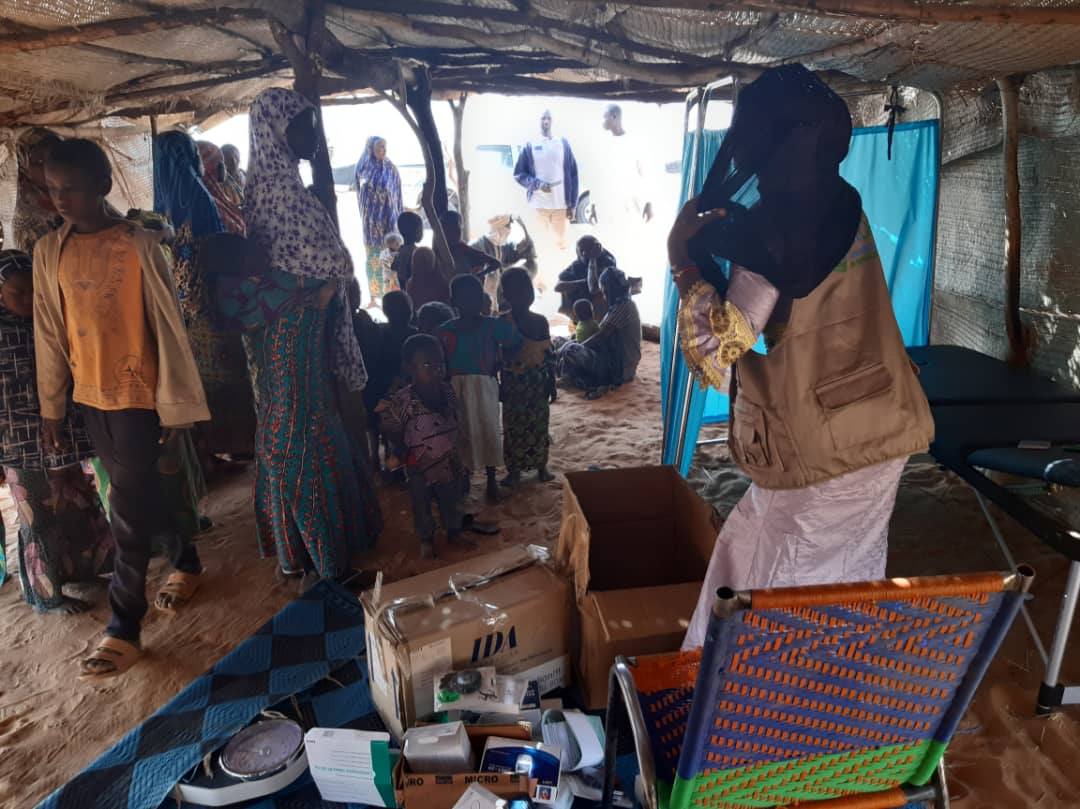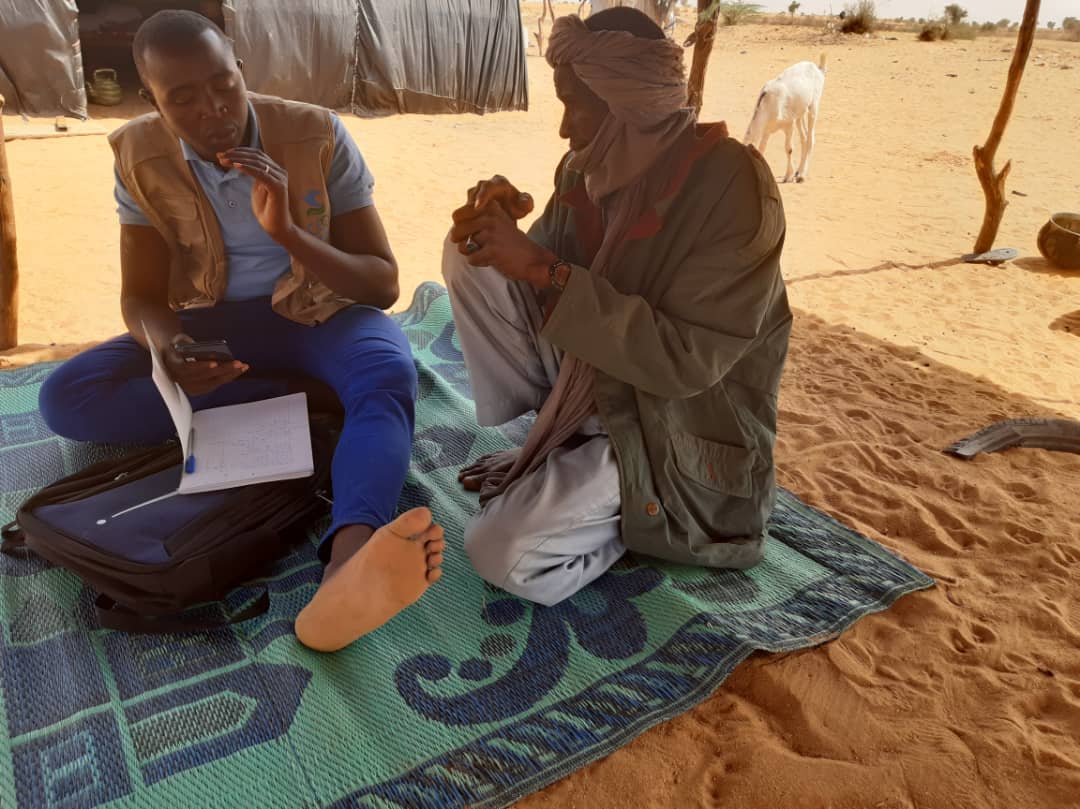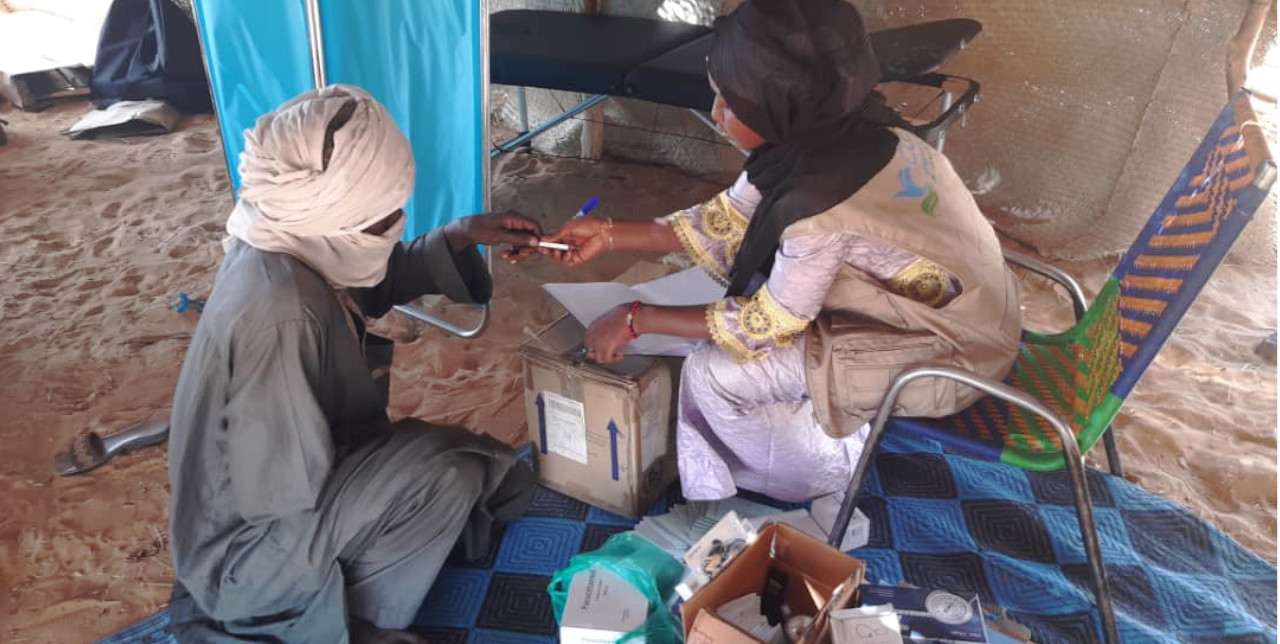29-04-2020 | di COOPI
Covid-19. In Niger, we support the Integrated Health Centres of the Ministry of Public Health
Since the end of March 2020, the first cases of COVID-19 have been confirmed in Niger as well, especially in the city of Niamey, the capital. COOPI in Niger has adjusted its support to the displaced people in Tillaberi region, applying the prevention measures promoted by the World Health Organization.
In the framework of the projects “Responding to crisis-affected populations’ primary health care and mental health needs in Tillaberi and Tahoua regions (Mali and Burkina Faso borders) of Niger through a Rapid Response Mechanism (RRM) and support to existing services” funded by the Office of U. S Foreign Disaster Assistance (OFDA) and the European Commission (ECHO, Department for Humanitarian Aid and Civil Protection), COOPI distributed masks, gloves and thermometers to the health workers employed in 33 different Integrated Health Centres of the Ministry of Public Health of the region. COOPI installed handwashing facilities equipped with soap and paper. It built shacks, made with local materials, to guarantee distance between patients while waiting their turn. Finally, COOPI used mobile tents as doctor’s offices to ensure a distance of 1.50 meters between doctor and patients.

Distribution of material
Local staff is managing and conducting awareness activities on COVID-19 to assure the relation between health workers and people who are in vulnerable situations. They contacted local radio stations to share information, approved by the Ministry of Public Health, in several local languages so to spread the messages as much as possible.
Since 2018 the Integrated Health Centres have worked in collaboration with our mobile clinics. In Ayourou province, around 40,000 internally displaced people (IDPs) live. COOPI four mobile clinics visit 240 patients per day (an average of 60 patients for each clinic). Patients are mostly IDPs, escaped from their original villages because of armed groups’ violence (terrorists, army and bandits). The most frequent illnesses are malaria, which still today causes numerous deaths, diarrheic diseases due to water’s bad qualities and respiratory infections like pneumonia and bronchitis.

IDPs' assitance
Each clinic is composed by a doctor, a nurse, a psychologist and an obstetrician. The obstetrician’s role is fundamental: a woman in Niger usually gives birth to 6 children. That is why assistance for the mother and children is necessary for their well-being. At the same time, the psychologist plays a central role, as well. Psychological support and the identification of mental disorders is essential in a place like this region where most of the people have experienced trauma and suffer from insomnia and maladjustment.
Clinics intervene in all those areas where IDPs live. These regions are usually 15km far away from the Integrated Health Centres. Distance and restrictive measures (curfew from 19 to 6 and the prohibition to use motorcycles) prevent people to reach the centres. For all these reasons, mobile clinics’ interventions are fundamental in providing support and assistance.




 Niger
Niger